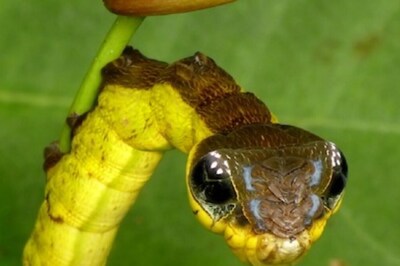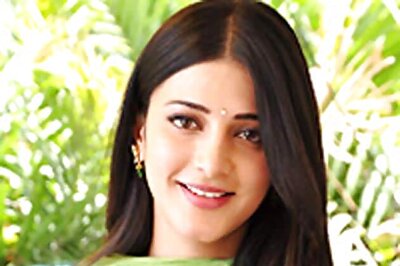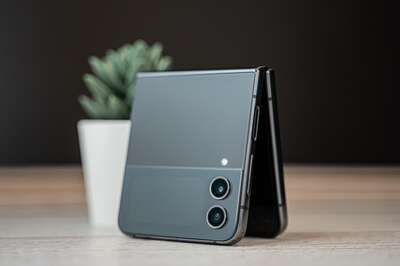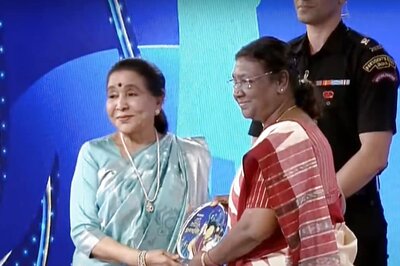
views
Kashi Art Gallery, unravels the mind of a disillusioned man,
who helplessly watches a divided society
Riyas Komu, a virtuoso of diverse art forms, has brought his artworks, including installations, paintings and photographs, on a single platform in his exhibition titled Duroohatha/Condition at the Kashi art gallery.
Komu, who has drawn inspiration from poets like Tukaram in his earlier projects, has introduced a poem by Rafiq Ahmed as a text of the time. His idea was to channelise this poem, which resonates with his own thoughts, on a visual platform. The poem titled ‘Satyam’ is a satire on truth and how it has been manipulated over time.
Likewise, one of his artworks titled ‘Easy Chair’ is an installation of a rocking chair with engravings of different ideologies. The “hammer and sickle”, the “star and crescent”, the “Congress symbol of the hand”, trenchantly illustrate the gamut of ideologies and divisions imposed by society, given the distinct cultural and communal set ups, and how these influences consequently mould the mind.
‘Communal sentiments and chauvinism’ that pervade society is the central theme of Komu’s exhibition. Like his previous works, Duroohatha is also centred on contemporary social issues. He believes his works are an archive of the present society. "Whatever I produce, must reflect the times we live in, so in a current context I am attempting to reflect my thoughts around ‘Political Guilt’ which Kerala is famous for nowadays,” he says.
Komu describes his work as ‘avasta’ - a situation in which you live and are bound to live; a state of life which is perhaps inevitable, like a dead end where there is acute confusion and no answers.
This is aptly portrayed in a self-portrait where “the subject” is shown in dire confusion with his temples that is evidently red due to anxiety and helplessness, and the face that is covered with his hand wielding a piece of cloth. It questions his responsibility towards society; a feeling of obligation he feels he owes to “earth”; and a consequential feeling of guilt that arises on account of his failure to address the “conditions of society” we are living in.
The political system, the attitude of people, the Keralite mindset bothers me, says Komu. “But I’ve not tried to fight against “it”. This portrait is like a “society imposed gesture”. You are bound to become like this cause we are living in a time where we submit to the “conditions” of society”, he reveals.
The chef d’oeuvre of Komu’s exhibition is ‘Puthiya Yakshi’ or the new ghost, depicting the vaginal cleft of a woman’s body. This engraving of an agonised dog on a gilded background depicts the gold- obsessed, male-chauvinistic society of Kerala.
Communal disharmony is an issue that has unnerved Komu, and his works here are a stark representation of this. Two tall wooden logs have been erected, opposite each other, to depict bottles of salt and pepper, and each is capped with a microphone, as if there was a conversation between two different ideologues. Salt here is a metaphor for Gandhi whose ideas triumphed over “all things colonial”, which is represented here as pepper. Thus, the salt bottle is depicted as towering over pepper, signalling how Gandhi won over colonial forces through discourse. Gandhism continues to have relevance and we need to look at the villages that have been ignored for long, says Komu.
Komu has skillfully used repetition as a metaphor to get his views across to the audience. Komu feels that the divisive issues that engulf India in the present have a genesis in the past. In this case, he has juxtaposed metallic imagery of Mohammed Ali Jinnah and Mahatma Gandhi to represent the division in society. He feels there is this hangover from the past which is recurring and that we continue to live in the same agony.
Few exhibits in recent times have dwelt upon sensitive communal issues with such fervour. Riyas Komu’s exhibition unravels the mind of a disillusioned man, who helplessly watches the society around him feud in the backdrop of a system marred by bigoted beliefs.
The exhibition is on till October 30 at the Kashi Art Gallery, Fort Kochi.



















Comments
0 comment